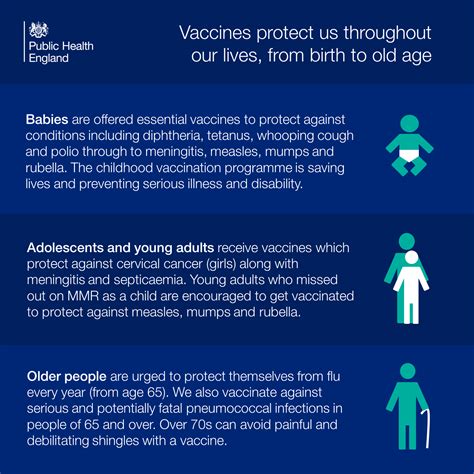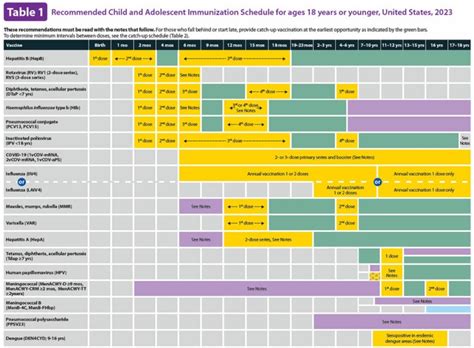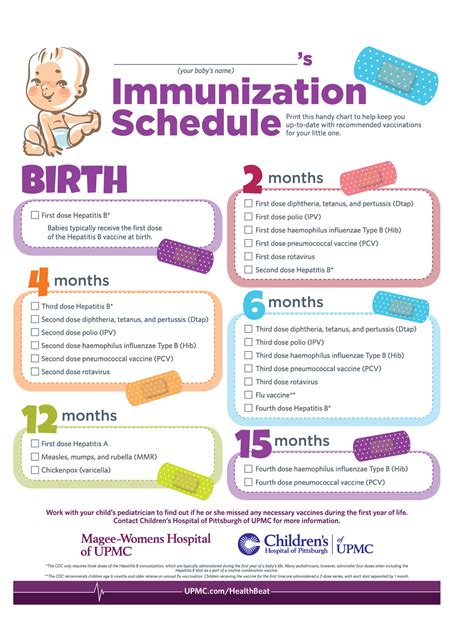Intro
Discover essential 5 infant vaccine tips, including vaccination schedules, vaccine types, and safety precautions, to ensure your babys health and well-being, covering immunization best practices and pediatric care.
Infant vaccines are a crucial aspect of ensuring the health and well-being of newborns. Vaccinations help protect infants from serious diseases and infections, many of which can be life-threatening. With so many different vaccines available, it can be overwhelming for new parents to navigate the vaccination schedule and make informed decisions about their child's health. In this article, we will delve into the world of infant vaccines, exploring the importance of vaccinations, the different types of vaccines available, and providing valuable tips for parents.
The importance of infant vaccines cannot be overstated. Vaccines have been proven to be highly effective in preventing the spread of diseases and protecting infants from serious illnesses. According to the Centers for Disease Control and Prevention (CDC), vaccines have been responsible for saving millions of lives and preventing countless cases of disease. Furthermore, vaccines not only protect the individual child but also help to prevent the spread of disease within communities, thereby protecting vulnerable individuals who may not be able to receive vaccines themselves.
As a parent, it's natural to have questions and concerns about infant vaccines. With so much misinformation circulating online, it can be difficult to separate fact from fiction. However, by educating themselves about the benefits and risks of vaccines, parents can make informed decisions about their child's health. In this article, we will provide parents with valuable insights and tips for navigating the world of infant vaccines, helping them to make the best decisions for their child's health and well-being.
Understanding Infant Vaccines

Understanding infant vaccines is crucial for making informed decisions about a child's health. There are several types of vaccines available, each designed to protect against specific diseases. Some of the most common infant vaccines include the DTaP vaccine, which protects against diphtheria, tetanus, and pertussis; the Hib vaccine, which protects against Haemophilus influenzae type b; and the PCV vaccine, which protects against pneumococcal disease. Each vaccine has its own unique schedule and recommendations, and parents should consult with their pediatrician to determine the best course of action for their child.
Types of Infant Vaccines
There are several types of infant vaccines available, each with its own unique characteristics and benefits. Some of the most common types of infant vaccines include: * Inactivated vaccines, which contain killed or inactivated viruses or bacteria * Live, attenuated vaccines, which contain weakened or attenuated viruses or bacteria * Conjugate vaccines, which combine a weakened bacteria with a carrier protein to enhance immune response * Toxoid vaccines, which contain inactivated toxins produced by bacteriaBenefits of Infant Vaccines

The benefits of infant vaccines are numerous and well-documented. Vaccines have been proven to be highly effective in preventing the spread of diseases and protecting infants from serious illnesses. Some of the most significant benefits of infant vaccines include:
- Protection against serious diseases and infections
- Prevention of long-term health complications and disabilities
- Reduction of risk of disease transmission within communities
- Enhancement of immune system function and development
Risks and Side Effects of Infant Vaccines
While infant vaccines are generally considered safe and effective, there are some risks and side effects to be aware of. Common side effects of infant vaccines include: * Redness, swelling, or soreness at the injection site * Fever or chills * Fussiness or irritability * Loss of appetite or sleep disturbances It's essential for parents to discuss any concerns or questions they have with their pediatrician, who can provide personalized guidance and support.Infant Vaccine Schedule

The infant vaccine schedule can be overwhelming, with multiple vaccines recommended at different ages. The CDC recommends a comprehensive schedule of vaccines, which includes:
- Hepatitis B vaccine at birth
- Rotavirus vaccine at 2 months
- DTaP vaccine at 2, 4, and 6 months
- Hib vaccine at 2, 4, and 6 months
- PCV vaccine at 2, 4, and 6 months
- Influenza vaccine at 6 months and annually thereafter
Staying on Track with the Vaccine Schedule
Staying on track with the vaccine schedule is crucial for ensuring a child receives optimal protection against diseases. Parents can take several steps to stay on track, including: * Scheduling regular check-ups with the pediatrician * Keeping a record of vaccinations and schedules * Asking questions and seeking guidance from the pediatrician * Staying informed about vaccine recommendations and updates5 Infant Vaccine Tips for Parents

As a parent, it's essential to be informed and prepared when it comes to infant vaccines. Here are 5 valuable tips for parents:
- Stay informed: Stay up-to-date with the latest vaccine recommendations and schedules.
- Ask questions: Don't hesitate to ask your pediatrician questions or seek guidance on vaccine-related concerns.
- Keep a record: Keep a record of your child's vaccinations and schedules to ensure they stay on track.
- Be prepared: Be prepared for vaccine appointments by bringing any necessary documents or information.
- Stay calm: Stay calm and reassured, knowing that vaccines are safe and effective in protecting your child's health.
Additional Tips for Parents
In addition to these 5 tips, parents can take several other steps to support their child's vaccine schedule, including: * Encouraging a healthy lifestyle, including a balanced diet and regular exercise * Practicing good hygiene, such as frequent handwashing * Avoiding close contact with individuals who may be sick or infectedCommon Concerns and Misconceptions

There are several common concerns and misconceptions surrounding infant vaccines. Some of the most common concerns include:
- Autism and vaccines: There is no scientific evidence to support the claim that vaccines cause autism.
- Vaccine overload: The idea that too many vaccines can overwhelm a child's immune system is not supported by scientific evidence.
- Vaccine ingredients: While some vaccines may contain ingredients like mercury or formaldehyde, these ingredients are safe and necessary for vaccine effectiveness.
Addressing Concerns and Misconceptions
It's essential for parents to address any concerns or misconceptions they may have about infant vaccines. By seeking guidance from a pediatrician and staying informed about the latest vaccine recommendations, parents can make informed decisions about their child's health. Additionally, parents can take several steps to alleviate concerns, including: * **Educating themselves**: Staying informed about vaccine benefits and risks * **Asking questions**: Seeking guidance from a pediatrician or healthcare professional * **Supporting vaccine research**: Encouraging and supporting ongoing vaccine research and developmentWhat is the recommended infant vaccine schedule?
+The CDC recommends a comprehensive schedule of vaccines, which includes Hepatitis B vaccine at birth, Rotavirus vaccine at 2 months, DTaP vaccine at 2, 4, and 6 months, Hib vaccine at 2, 4, and 6 months, PCV vaccine at 2, 4, and 6 months, and Influenza vaccine at 6 months and annually thereafter.
Are infant vaccines safe and effective?
+Yes, infant vaccines are generally considered safe and effective in preventing the spread of diseases and protecting infants from serious illnesses. While there may be some risks and side effects associated with vaccines, these are typically mild and temporary.
What are some common concerns and misconceptions surrounding infant vaccines?
+Some common concerns and misconceptions surrounding infant vaccines include the idea that vaccines cause autism, that too many vaccines can overwhelm a child's immune system, and that vaccine ingredients like mercury or formaldehyde are unsafe. However, these concerns are not supported by scientific evidence, and vaccines are continually monitored for safety and effectiveness.
In conclusion, infant vaccines are a vital aspect of ensuring the health and well-being of newborns. By understanding the benefits and risks of vaccines, staying informed about vaccine recommendations, and addressing any concerns or misconceptions, parents can make informed decisions about their child's health. We encourage readers to share their thoughts and experiences with infant vaccines in the comments below and to consult with their pediatrician for personalized guidance and support.
